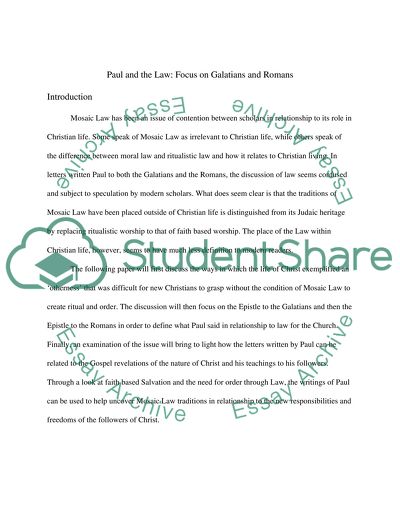Cite this document
(“Apostle Paul and the Law Research Paper Example | Topics and Well Written Essays - 3250 words”, n.d.)
Retrieved from https://studentshare.org/religion-and-theology/1401240-apostle-paul-and-the-law
Retrieved from https://studentshare.org/religion-and-theology/1401240-apostle-paul-and-the-law
(Apostle Paul and the Law Research Paper Example | Topics and Well Written Essays - 3250 Words)
https://studentshare.org/religion-and-theology/1401240-apostle-paul-and-the-law.
https://studentshare.org/religion-and-theology/1401240-apostle-paul-and-the-law.
“Apostle Paul and the Law Research Paper Example | Topics and Well Written Essays - 3250 Words”, n.d. https://studentshare.org/religion-and-theology/1401240-apostle-paul-and-the-law.


